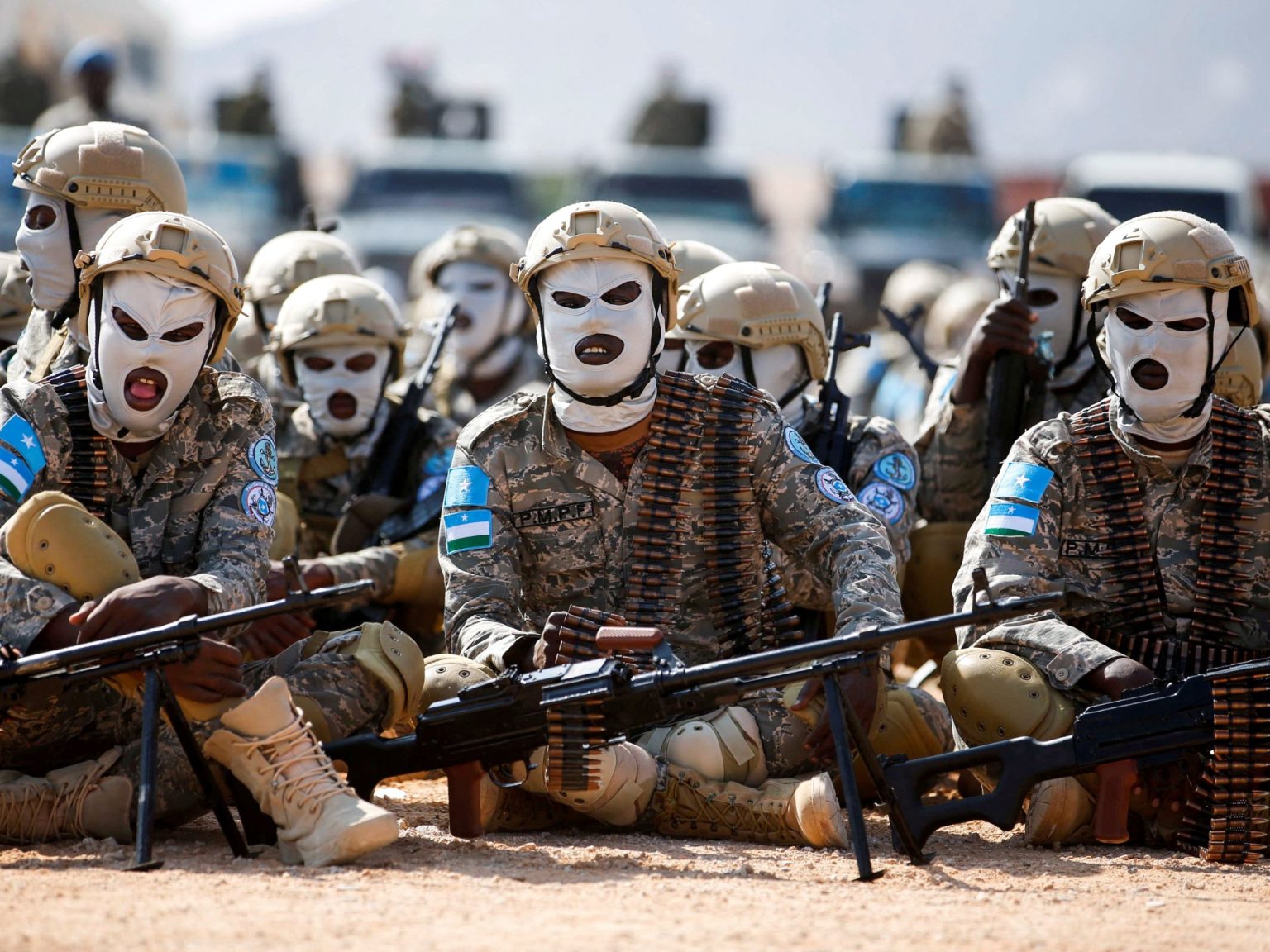The capture of Abdirahman Shirwac Aw-Saciid, a high-ranking ISIS commander in Somalia, marks a significant development in the ongoing fight against the extremist group. Aw-Saciid, also known as “Laahoor,” led the group’s assassination squad and oversaw extortion activities, targeting local businesses to fund their operations. His surrender to authorities in the Cal Miskaad mountains of Puntland state follows a series of strategic setbacks for ISIS in Somalia, including targeted US airstrikes against the group’s leadership just two days prior. This capture represents a major victory for Somali security forces and their international partners in their efforts to dismantle the growing threat of ISIS in the Horn of Africa.
Aw-Saciid’s capture coincides with a broader offensive launched by Puntland authorities against both ISIS and the al-Qaeda-affiliated al-Shabab. This offensive underscores the complex security landscape in Somalia, where multiple extremist groups vie for power and influence. While al-Shabab has historically been the dominant force, controlling large swathes of southern Somalia, ISIS has emerged as a growing concern in recent years. The group has attracted foreign fighters and implemented more sophisticated tactics, evidenced by their use of vehicle-borne improvised explosive devices (VBIEDs) in a recent attack on a military base. This increased capability poses a significant challenge to regional stability and requires a concerted effort to counter its expansion.
The US airstrikes, which preceded Aw-Saciid’s capture, were hailed as a success by US officials, claiming to have significantly degraded ISIS’s ability to plan and execute attacks. The strikes targeted ISIS fighters hiding in caves, and while the US asserted no civilian casualties, the full extent of the damage and casualties remains to be independently verified. The US intervention highlights the international dimension of the fight against ISIS in Somalia, with foreign powers recognizing the potential for the group to destabilize the region and pose a broader threat. The US has been conducting airstrikes in Somalia for several years, targeting both al-Shabab and ISIS, playing a significant role in supporting Somali security forces.
The recent developments in Somalia underscore the evolving nature of the threat posed by extremist groups. While al-Shabab remains a formidable force, ISIS’s emergence and increasing sophistication present a new set of challenges. The capture of a key ISIS commander and the targeted airstrikes represent significant blows to the group’s operational capacity. However, the complex political and security landscape in Somalia, coupled with the presence of multiple armed groups, necessitates a sustained and multi-faceted approach to effectively counter the threat of extremism. This requires not only military action but also addressing the underlying socio-economic factors that contribute to the recruitment and radicalization of individuals.
Somalia’s protracted civil war, spanning over three decades, has created a fertile ground for extremist groups to thrive. The lack of effective governance, widespread poverty, and the availability of weapons have facilitated the growth of groups like al-Shabab and ISIS. Addressing these root causes is crucial to achieving long-term stability and preventing the resurgence of extremist ideologies. This requires a comprehensive strategy that includes strengthening state institutions, promoting economic development, and fostering inclusive governance. International support is essential in this endeavor, providing both financial and technical assistance to help Somalia rebuild and create a more secure future.
The capture of Aw-Saciid represents a positive step in the fight against ISIS in Somalia, but the battle is far from over. The ongoing offensive against both ISIS and al-Shabab demonstrates the commitment of Somali authorities and their international partners to address the complex security challenges facing the country. However, sustained efforts are needed to dismantle these groups, disrupt their networks, and prevent their resurgence. This requires a comprehensive approach that combines military action with addressing the underlying political, economic, and social factors that contribute to instability and extremism. The international community must continue to support Somalia in its efforts to build a more secure and prosperous future for its people.

